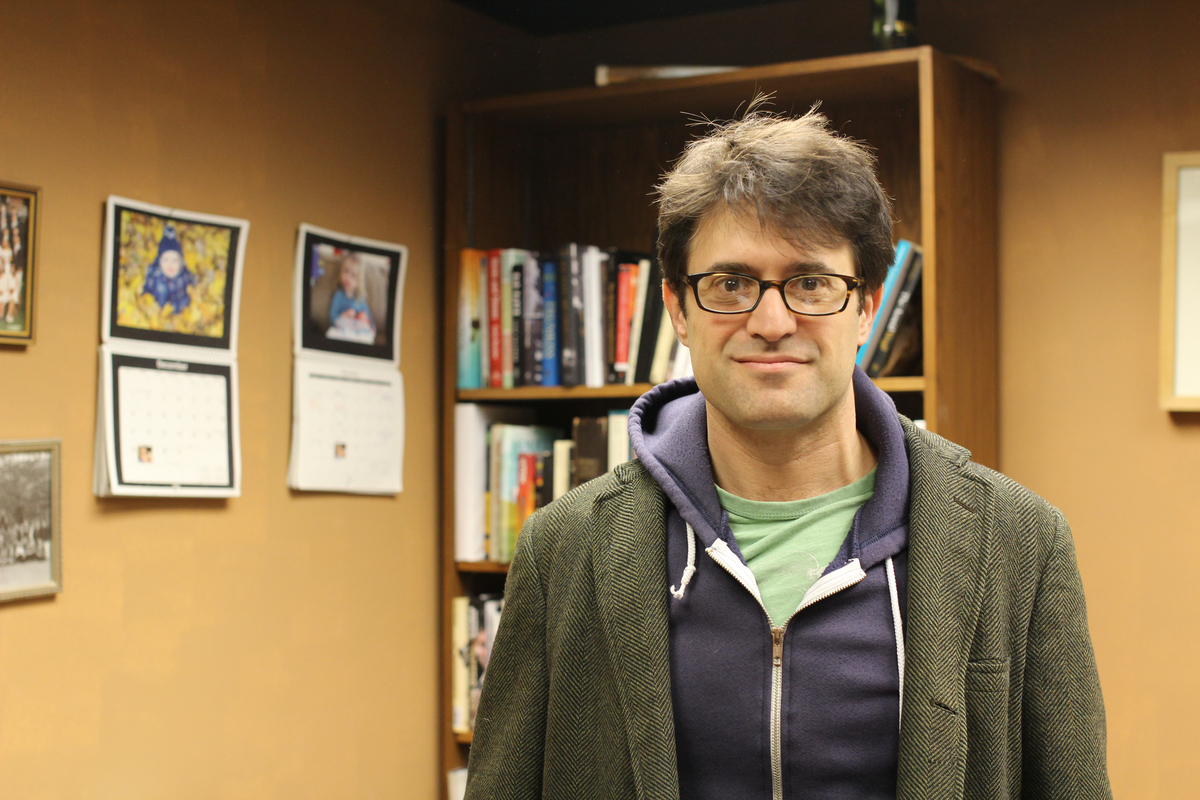Oppenheimer speaks to Jewish Community Center of Greater New Haven on new book on Squirrel Hill community’s healing process
English lecturer Mark Oppenheimer revisits the 2018 Pittsburgh synagogue shooting and its aftermath within the Squirrel Hill community in a Tuesday night book talk.

Yale Daily News
With the approaching anniversary of the Oct. 27, 2018 Pittsburgh synagogue shooting — the deadliest antisemitic attack in U.S.history — English lecturer Mark Oppenheimer ’96 GRD ’03 discussed the tragedy’s aftermath in a talk this Tuesday.
Around 130 people attended the talk, which was organized by Susan Skalka, the adult program manager for the Jewish Community Center of Greater New Haven. The event was hosted in person and via Zoom as part of the Beckerman Jewish Cultural Arts Series. The event also included opportunities to purchase Oppenheimer’s latest book, “Squirrel Hill: The Tree of Life Synagogue Shooting and the Soul of a Neighborhood.” The talk featured readings from the book and a live Q&A session.
“We tend to know mass violence through what we see in the media … [which] descends for a little while and then they leave,” Oppenheimer said. “I was really interested in the stories on the ground that don’t get picked up when the media storm comes through town.”
Oppenheimer’s book captures the voices and stories of individuals and institutions in the wake of the shooting. He drew special attention to the photos that he supplemented his prose with and shared some of the images with attendees.
The images depicted symbols of hope and pride that Jewish communities in Pittsburgh wove into everyday life to confront the healing process — including Jewish symbols painted onto Starbucks windows, a child holding a poster thanking the police for protecting Jewish communities and handmade Stars of David dangling from a “Welcome to Squirrel Hill” sign.
Oppenheimer said that the “extraordinary profusion of creative and beautiful visuals … and human ingenuity in making that symbolism” characterizes the aftermath of mass violence.
But the efforts were not exclusive to the local Jewish community. Multigenerational communities of all ages and religious identities living in Squirrel Hill came together following the shooting, Oppenheimer explained. He had extensive discussions with local high school students who initiated a candle-lighting ceremony for the victims. He said that though victims of the shooting were not Orthodox, Orthodox Jews provided significant financial donations and held religious rituals for the victims.
For student Daniella Shear ’24, whose family resides in Squirrel Hill and attends a synagogue a few blocks away from the Tree of Life, the tragedy’s aftermath brought the neighborhood community closer through service and social justice. Following the shooting, synagogues and Jewish centers throughout the neighborhood held talks about how the event was related to other violent acts of white supremacy and hosted a “morning of service on the first anniversary of the shooting,” featuring volunteers from other towns as well. Shear said that though recovery is still an ongoing process today, she looks forward to the day the Tree of Life synagogue will be rebuilt.
Conversations about the Tree of Life shooting extended beyond Pittsburgh to groups across the world, regardless of religion.
JCCNH Executive Director Scott Cohen believes that it is important to make events like Tuesday night’s talk accessible to all members of the community, and a central goal of the JCCNH is to celebrate the works of locals.
“Our presentations usually have a Jewish perspective … [but] we’re open to doing programming that satisfies the spectrums of our communities,” Cohen said.
Rabbi Jason Rubenstein, Yale’s Howard M. Holtzmann Jewish chaplain, agreed that the shooting’s violent agenda merited the attention of those outside the Jewish community.
Rubenstein said that the tragedy clashed with an image of America that welcomed immigrants, refugees and ethnically diverse groups. He explained that the attack was both a chapter in Pittsburgh’s history and in the history of attacks against minority houses of worship and other marginalized groups.
“We’re not alone in facing these kinds of threats to individuals and our institutions,” Rubenstein told the News, citing the recent Atlanta shooting of eight Asian American women.
In collaboration with Lia Solomon ’24, Rubenstein is planning to host an upcoming commemoration program at the Joseph Slifka Center for Jewish Life at Yale on the evening of Nov. 1. The chosen date is close to the anniversaries of the Tree of Life shooting and Kristallnacht. The latter marks the first great act of violence by the Nazi army against the Jewish community. They are hopeful that the event, which will feature Oppenheimer as a speaker, will open a dialogue among Yale community members about these two events of memory, trauma and antisemitic violence.
Over the course of the next few months, Oppenheimer will be talking about Squirrel Hill at bookstores, synagogues, colleges and community centers across the United States. View his schedule here.







